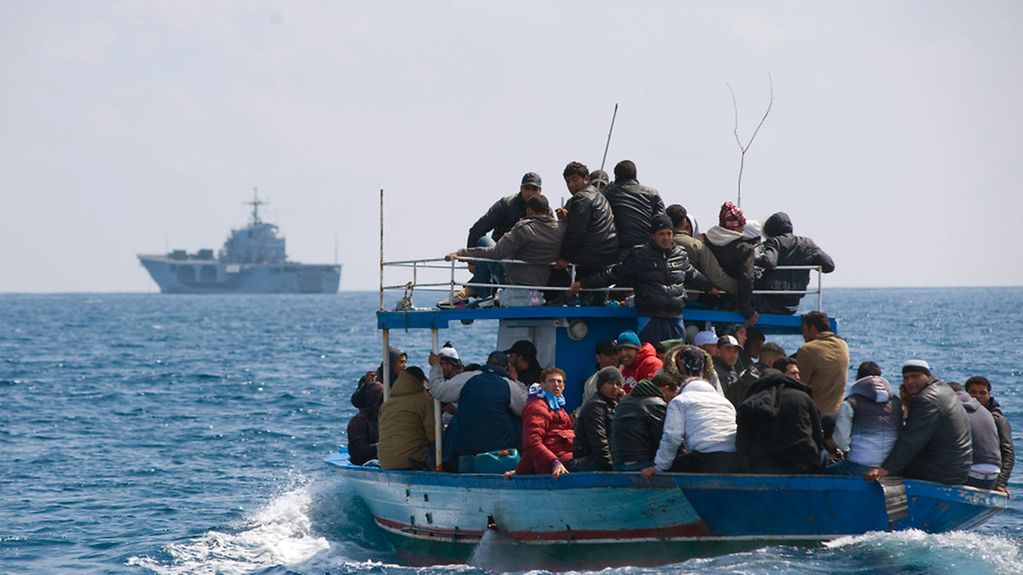Financial support
To cope with the continuing influx of refugees, the European Commission is supporting the Member States with a total of 2.4 billion euros. The money comes from two different funds. Germany will receive around 350 million euros from the two funds until 2020.
1 min reading time

Boat refugees off the coast of Lampedusa on their way to Italy
Photo: picture-alliance / Milestone Med
The EU Commission on August 10 approved a further 23 national programmes to be financed with funds from the Asylum, Migration and Integration Fund (AMIF) and the Internal Security Fund (ISF). A total of 2.4 billion euros will be made available to the Member States until 2020 for the reception and integration of refugees on a local and regional level and the implementation of asylum procedures, among other things.
The corresponding programs for Germany were already approved by the Commission in March 2015. Germany will be entitled to more than 221 million euros from the AMIF and 134 million euros from the ISF until 2020.
Controlling migration flows efficiently
The AMIF contributes to the effective management of migration flows and to the development of a common approach to asylum and migration. The fund supports national measures with the aim of increasing reception capacities, carrying out asylum procedures in line with EU standards, integrating migrants on a local and regional level and improving the effectiveness of return programmes.
The Internal Security Fund (ISF) consists of the Borders and Visa instrument and the instrument for financial support for police cooperation, preventing and combating crime, and crisis management. It finances national measures to improve border management and border control in the Member States, in particular through the use of modern technologies. The ISF also finances measures improving cross-border law enforcement and strengthening the capacity of Member States to effectively counter security threats such as terrorism and violent radicalisation, drug trafficking, cybercrime, human trafficking and other forms of organised crime.